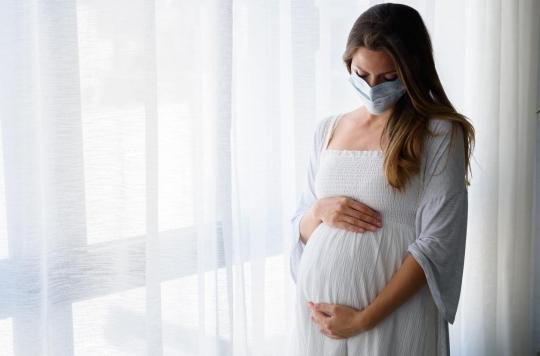As the vaccination campaign against Covid-19 is launched in France, specific strategies are being considered for people with cancer or pregnant women.

- Unicancer proposes to distinguish three categories of people with cancer, and to vaccinate them accordingly.
- Doctors are divided on the vaccination of pregnant women.
The government plans to vaccinate people aged over 75 by the end of January 2021. Unicancer recalls that among them, cancer patients are at high risk of complications from Covid-19, and should therefore be given priority “even if we must take into account certain specificities related to the treatment of cancer”.
Three categories of cancer patients to distinguish
Professor Blay, President of Unicancer, emphasizes that clinical studies prior to the launch of mRNA vaccines did not include immunocompromised patients or patients undergoing active treatment. According to him, “cancer patients are by definition a fragile population, for which the vaccination strategy must be particularly precise, coordinated and adapted to the different situations”.
He proposes to distinguish three categories of patients:
cancer patients who have completed their treatment, for whom vaccination is recommended;
the patients treated “In the long term” hormonal or targeted therapy who can also be vaccinated;
patients in the active phase of their treatment, treated with chemotherapy or immunotherapy, systemically, for whom specific and coordinated monitoring is necessary. These patients may be monitored within dedicated programs and registries, or be offered a specific clinical study.
Mixed opinions for pregnant women
Regarding pregnant women, the CNGOF campaigns for their vaccination. “It is now accepted that SARS-CoV-2 infection during pregnancy is a significant source of morbidity and that pregnancy is a risk factor for severity, with a greater risk of respiratory distress, hospitalization in care intensive, intubation, and a risk of induced prematurity”, explains gynecologists. Pregnant women are recognized as belonging to the groups at risk of serious forms by the HCSP and the HAS.
In this context, although no study on the efficacy and tolerance of vaccination has taken place during pregnancy, “there is no a priori reason to think that pregnant women should be excluded from vaccination campaigns”, says the union. “The proposed vaccines are not live attenuated vaccines and have no reason to be contraindicated”, he continues.
In addition, studies in animals have not shown any teratogenic effect, nor any effect on reproduction. “Influenza vaccination during pregnancy is widespread and pregnant women are included in national influenza vaccination campaigns to their benefit. Pertussis vaccination during pregnancy is widely recommended worldwide”argue gynecologists.
Two recent editorials published by American learned societies also advocate for the vaccination of pregnant women against SARS-CoV-2. The US Federal Drug and Food Administration has authorized vaccination of pregnant women. ACOG and the SMFM have also ruled in this regard. “Thus, like any population at risk, pregnant women and those wishing to conceive, in particular through medically assisted procreation, should be offered SARS-CoV-2 vaccination as a priority. conclude health professionals.
However, some doctors have more measured opinions, such as Professor Alain Didier. “For the moment, vaccination is not recommended for pregnant and breastfeeding women. Like any new medicine, it is best to be extremely careful before administering it during pregnancy. Knowing that we lack hindsight on the severity of SARS CoV2 infection in pregnant women and that vaccination is not recommended for the moment, we must insist on strict compliance with barrier measures during pregnancy.“, says the specialist.
.















